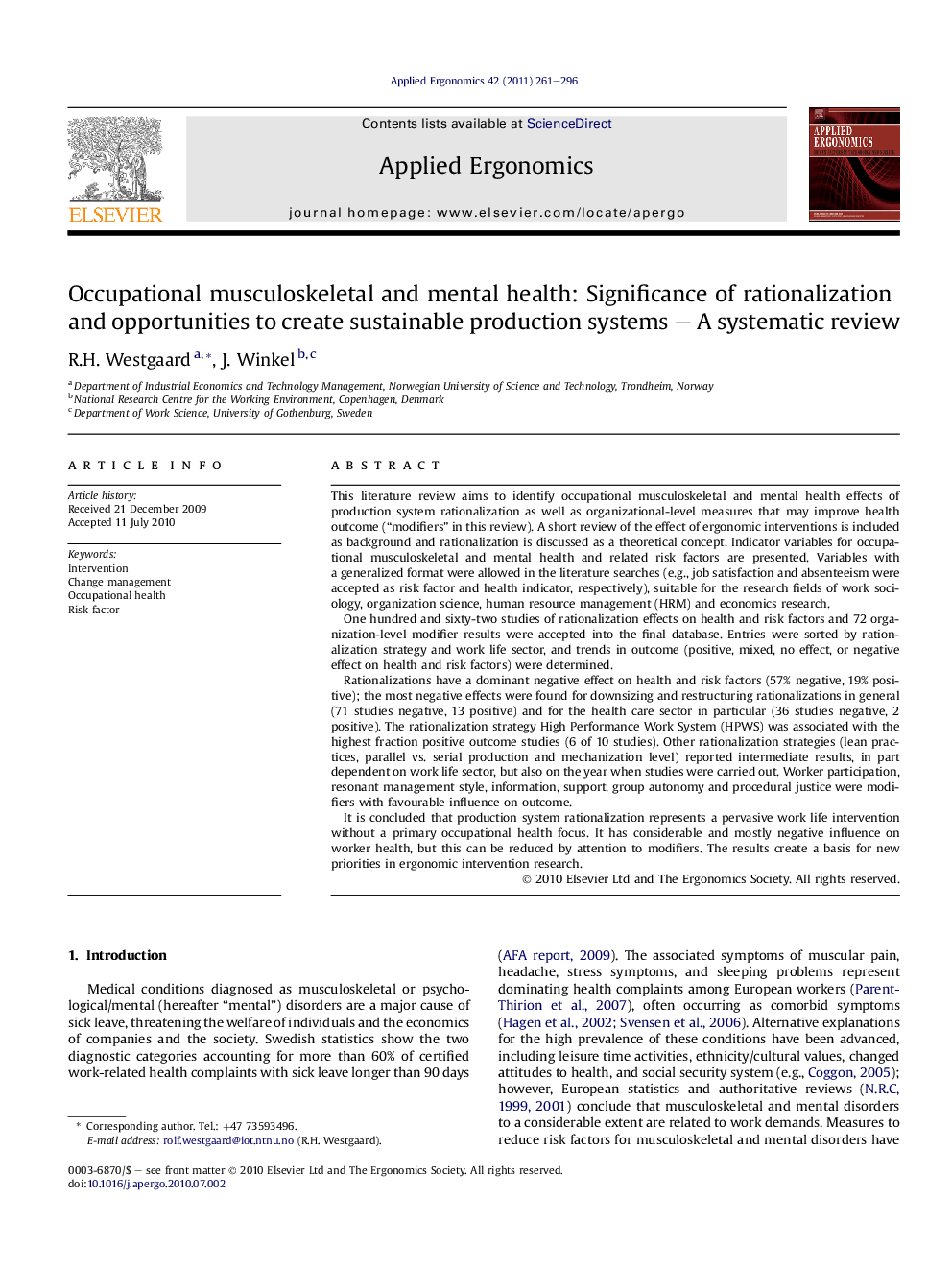| Article ID | Journal | Published Year | Pages | File Type |
|---|---|---|---|---|
| 548788 | Applied Ergonomics | 2011 | 36 Pages |
This literature review aims to identify occupational musculoskeletal and mental health effects of production system rationalization as well as organizational-level measures that may improve health outcome (“modifiers” in this review). A short review of the effect of ergonomic interventions is included as background and rationalization is discussed as a theoretical concept. Indicator variables for occupational musculoskeletal and mental health and related risk factors are presented. Variables with a generalized format were allowed in the literature searches (e.g., job satisfaction and absenteeism were accepted as risk factor and health indicator, respectively), suitable for the research fields of work sociology, organization science, human resource management (HRM) and economics research.One hundred and sixty-two studies of rationalization effects on health and risk factors and 72 organization-level modifier results were accepted into the final database. Entries were sorted by rationalization strategy and work life sector, and trends in outcome (positive, mixed, no effect, or negative effect on health and risk factors) were determined.Rationalizations have a dominant negative effect on health and risk factors (57% negative, 19% positive); the most negative effects were found for downsizing and restructuring rationalizations in general (71 studies negative, 13 positive) and for the health care sector in particular (36 studies negative, 2 positive). The rationalization strategy High Performance Work System (HPWS) was associated with the highest fraction positive outcome studies (6 of 10 studies). Other rationalization strategies (lean practices, parallel vs. serial production and mechanization level) reported intermediate results, in part dependent on work life sector, but also on the year when studies were carried out. Worker participation, resonant management style, information, support, group autonomy and procedural justice were modifiers with favourable influence on outcome.It is concluded that production system rationalization represents a pervasive work life intervention without a primary occupational health focus. It has considerable and mostly negative influence on worker health, but this can be reduced by attention to modifiers. The results create a basis for new priorities in ergonomic intervention research.
